
Cancer Informatics
Scope & Guideline
Empowering Oncology Through Informatics
Introduction
Aims and Scopes
- Computational Biology and Bioinformatics:
The journal publishes studies that employ computational techniques to analyze biological data, particularly in the context of cancer genomics and transcriptomics. - Predictive Modeling and Machine Learning:
Research that utilizes machine learning and statistical modeling to predict cancer outcomes, treatment responses, and patient survival is a key focus area. - Immune Profiling and Therapeutic Insights:
The journal covers research on the role of the immune system in cancer, including immune-related biomarkers and therapeutic strategies utilizing immunotherapy. - Multi-Omics Approaches:
Studies integrating data from various omics layers (genomics, proteomics, metabolomics) to provide comprehensive insights into cancer biology are highlighted. - Clinical Decision Support Systems:
The development of computational tools and systems aimed at aiding clinical decisions in cancer treatment and management is a prominent theme in the journal.
Trending and Emerging
- Artificial Intelligence in Cancer Research:
The integration of AI and machine learning techniques for cancer diagnosis, prognosis, and treatment prediction is rapidly increasing, reflecting advancements in computational capabilities. - Immune-Oncology and Biomarker Discovery:
There is a growing focus on understanding immune responses in cancer and identifying biomarkers that can predict responses to immunotherapy. - Patient-Centric and Real-World Data Analysis:
Research utilizing real-world data to assess treatment efficacy, patient outcomes, and healthcare delivery is on the rise, emphasizing its importance in clinical decision-making. - Integration of Multi-Omics Data:
The trend towards utilizing multi-omics approaches to provide a holistic view of cancer biology and therapy response is increasingly prevalent. - Computational Drug Discovery and Development:
Emerging studies focus on computational methods for drug discovery, including the identification of novel therapeutic targets and the evaluation of drug combinations.
Declining or Waning
- Traditional Chemotherapy Studies:
Research focused solely on traditional chemotherapy approaches is becoming less prominent, as there is a growing emphasis on personalized medicine and targeted therapies. - Epidemiological Studies Without Computational Focus:
While epidemiological research remains important, studies that do not incorporate computational analysis or bioinformatics are appearing less frequently in the journal. - Single-Gene Studies:
Investigations centered around single gene analyses are declining, as the field moves towards comprehensive genomic profiling and multi-gene signatures for better predictive capabilities. - Basic Laboratory Techniques Without Computational Integration:
Papers that describe basic laboratory methods without incorporating computational insights or analyses are increasingly rare, as the focus shifts towards integrative approaches.
Similar Journals
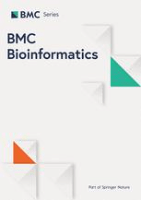
BMC BIOINFORMATICS
Empowering Research with Open Access Bioinformatics Insights.BMC Bioinformatics is a leading open-access journal published by BMC, dedicated to the rapidly evolving field of bioinformatics. With its inception in 2000, the journal has established itself as an essential resource for researchers, professionals, and students alike, disseminating high-quality research that bridges the gap between biology and computational science. BMC Bioinformatics holds a reputable Q1 ranking in Applied Mathematics and Computer Science Applications, and a Q2 ranking in both Biochemistry and Structural Biology, reflecting its significant impact in these interdisciplinary fields. The journal's broad scope encompasses innovative methodologies, tools, and applications that drive progress in biological research through computational approaches. With open access since its inception, the journal ensures unrestricted availability of cutting-edge research findings, promoting knowledge sharing and collaboration in the global scientific community. As it continues to publish advancements up to 2024, BMC Bioinformatics remains a cornerstone for those seeking to enhance their understanding of bioinformatics and its vital role in modern science.
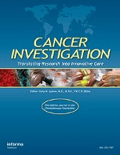
CANCER INVESTIGATION
Advancing cancer research, one investigation at a time.CANCER INVESTIGATION is a distinguished peer-reviewed journal published by Taylor & Francis Inc, dedicated to the advancing field of cancer research and oncology. With an ISSN of 0735-7907 and E-ISSN of 1532-4192, this journal has been a pivotal resource for professionals and researchers since its inception in 1983, continually contributing to the evolving landscape of cancer investigation until its convergence in 2024. CANCER INVESTIGATION boasts noteworthy rankings in 2023, including Q3 in Cancer Research and Q2 in Medicine (miscellaneous), highlighting its relevance and impact in these critical areas. The journal's commitment to disseminating innovative research and comprehensive reviews makes it an essential platform for those engaged in cancer studies and related disciplines. While currently not available as an open-access publication, CANCER INVESTIGATION remains an invaluable tool for understanding the complexities of cancer, offering insights that drive scientific advancements and improve patient outcomes.
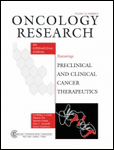
ONCOLOGY RESEARCH
Pioneering Insights in Oncology and MedicineONCOLOGY RESEARCH, published by TECH SCIENCE PRESS, is a vital academic journal dedicated to the rapidly evolving field of oncology. With its ISSN 0965-0407 and E-ISSN 1555-3906, the journal serves as a key resource for researchers, clinicians, and academicians committed to advancing cancer research and treatment strategies. Operating without an Open Access model, ONCOLOGY RESEARCH provides high-quality, peer-reviewed articles that cover diverse topics within cancer research, medicine, and oncology, with its 2023 Scopus ranking placing it in the Q3 quartile. The journal's commitment to facilitating rigorous scientific discourse is evident in its historical breadth, with a publishing history dating back to 1992. ONCOLOGY RESEARCH is not only significant for the academic community but also plays a critical role in fostering new insights and approaches in the fight against cancer, making it a must-read for those involved in this critical area of study.

Cancer Biology & Medicine
Unlocking Insights in Cancer ResearchCancer Biology & Medicine is a distinguished Open Access journal published by the China Anti-Cancer Association, dedicated to advancing research and understanding in the fields of Cancer Research and Oncology. Since its inception in 2012, the journal has provided a vital platform for the dissemination of high-quality research, evidenced by its impressive ranking within the Q1 and Q2 categories of oncology and cancer research as of 2023. With a significant impact factor and a Scopus ranking of #64 in Medicine/Oncology and #55 in Biochemistry, Genetics, and Molecular Biology, it plays a crucial role in shaping the future of cancer biology. By offering open access to its content, the journal ensures that pivotal research findings are readily available to researchers, professionals, and students globally, thereby fostering collaboration and innovation in cancer research. Situated in Tianjin, China, this journal is poised at the frontier of oncology research, making a significant impact through its rigorous peer-reviewed articles that address critical challenges in the field.

BIOCHIMICA ET BIOPHYSICA ACTA-REVIEWS ON CANCER
Transforming Cancer Knowledge into Impactful SolutionsBIOCHIMICA ET BIOPHYSICA ACTA-REVIEWS ON CANCER, published by Elsevier, has established itself as a leading journal in the domains of cancer research, genetics, and oncology, holding a prestigious position in the Q1 quartile rankings in these fields as of 2023. With an ISSN of 0304-419X and an E-ISSN of 1879-2561, this journal aims to disseminate high-quality, impactful reviews that synthesize the latest advancements and findings in cancer biology, treatment modalities, and genomic studies. Its robust indexing and remarkable Scopus rankings—placing it in the 95th to 91st percentiles across various categories—underline its significance for researchers, clinicians, and students passionate about oncology. Operating from its Netherlands headquarters, BIOCHIMICA ET BIOPHYSICA ACTA-REVIEWS ON CANCER is dedicated to fostering a comprehensive understanding of the complex biological mechanisms underlying cancer, promoting innovative therapeutic strategies, and guiding future research directions.

INTERNATIONAL JOURNAL OF ONCOLOGY
Shaping the future of cancer care through knowledge.INTERNATIONAL JOURNAL OF ONCOLOGY is a leading academic publication dedicated to advancing the field of cancer research and treatment. Published by SPANDIDOS PUBL LTD in Greece, this journal, with ISSN 1019-6439 and E-ISSN 1791-2423, has established itself as a reputable source of peer-reviewed articles since its inception in 1993. With an impressive Q2 ranking in both Cancer Research and Oncology categories, as well as high Scopus ranks reflecting its significant contribution to the fields of Medicine and Biochemistry, the journal offers a platform for researchers, clinicians, and students alike to disseminate their findings and engage in dialogue surrounding innovative practices and breakthroughs. Although the journal follows a traditional subscription model, it continues to attract a diverse readership interested in the latest developments in oncological research, providing essential insights into cancer biology, therapeutics, and patient care. With a commitment to excellence, the INTERNATIONAL JOURNAL OF ONCOLOGY plays a vital role in shaping the future of oncology research and is a must-read for anyone passionate about advancing cancer treatment and prevention.
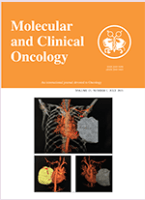
Molecular and Clinical Oncology
Exploring new frontiers in molecular and clinical oncology.Molecular and Clinical Oncology is a dynamic journal published by SPANDIDOS PUBL LTD, aimed at advancing the understanding of cancer biology and treatment modalities. With an ISSN of 2049-9450 and an E-ISSN of 2049-9469, the journal serves as a critical platform for researchers and clinicians dedicated to uncovering novel insights in molecular oncology and enhancing clinical practices. As a testament to its growing influence, the journal has achieved a Q3 ranking in Oncology and a Q4 ranking in Cancer Research for the year 2023, reflecting its commitment to publishing high-quality research. Although currently not an Open Access publication, the journal offers crucial subscription options, ensuring comprehensive access to groundbreaking studies and innovations in the field. With converged years spanning 2018 to 2024, the journal is set to continue enriching the academic community with its valuable contributions, ultimately empowering researchers, professionals, and students engaged in the fight against cancer.

npj Breast Cancer
Leading the charge in interdisciplinary cancer discovery.npj Breast Cancer, published by NATURE PORTFOLIO, stands at the forefront of breast cancer research as an esteemed open access journal since 2015. With its impressive trajectory, the journal has garnered a notable impact within the academic community, reflecting a Q1 ranking in prestigious categories such as Oncology, Pharmacology, and Radiology for 2023. Based in the United Kingdom and indexed under E-ISSN 2374-4677, npj Breast Cancer aims to disseminate cutting-edge research that fosters innovation in prevention, diagnosis, and treatment of breast cancer, thereby addressing one of the most pressing health issues of our time. Its placement within Scopus rankings, including a remarkable 19th position in Pharmacology and a percentile ranking in the 90th range for Radiology and Oncology, highlights its significance as a key resource for researchers, healthcare professionals, and policy-makers dedicated to advancing cancer care. Emphasizing accessibility and high-quality content, npj Breast Cancer provides an influential platform for interdisciplinary collaboration and discovery in the ongoing battle against breast cancer.
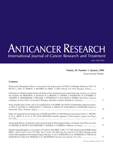
ANTICANCER RESEARCH
Shaping Tomorrow’s Cancer Therapies TodayANTICANCER RESEARCH, published by the International Institute of Anticancer Research, stands at the forefront of cancer-related scholarly communication. With ISSN 0250-7005 and E-ISSN 1791-7530, this esteemed journal has been serving the global research community since 1981, showcasing innovative research aimed at combating cancer through various therapeutic approaches and scientific inquiry. Based in Greece, the journal aims to disseminate vital findings in the fields of Cancer Research, Medicine, and Oncology, reflecting its notable categorization in the Q3 and Q2 quartiles as of 2023. Despite its rigorous peer-review process and the absence of open access, ANTICANCER RESEARCH remains a vital publication for researchers, clinicians, and students eager to stay updated on the evolving landscape of anticancer strategies. As it converges to its milestone year of 2024, the journal continues to enrich the discourse around cancer treatment and prevention, affirming its position as an essential resource for those dedicated to advancing knowledge in anticancer therapies.
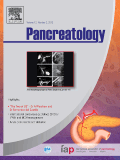
Pancreatology
Exploring Innovations in Endocrinology and GastroenterologyPancreatology is a prestigious journal published by ELSEVIER, focusing on the multifaceted disciplines of endocrinology, diabetes, gastroenterology, and hepatology since its inception in 2001. With an impressive Q1 ranking in multiple categories, including Endocrinology and Gastroenterology, Pancreatology stands out as a critical platform for disseminating peer-reviewed research that contributes to the evolving understanding of pancreatic diseases and associated metabolic disorders. This journal has gained significant recognition in the academic community, underscored by its robust Scopus rankings, positioning it favorably among its peers. While it currently does not offer open access, Pancreatology remains committed to advancing knowledge through high-quality publications and fostering innovation in clinical practice and research. Researchers, professionals, and students are invited to engage with the cutting-edge findings within its pages, which are essential for driving progress in this essential area of medicine.